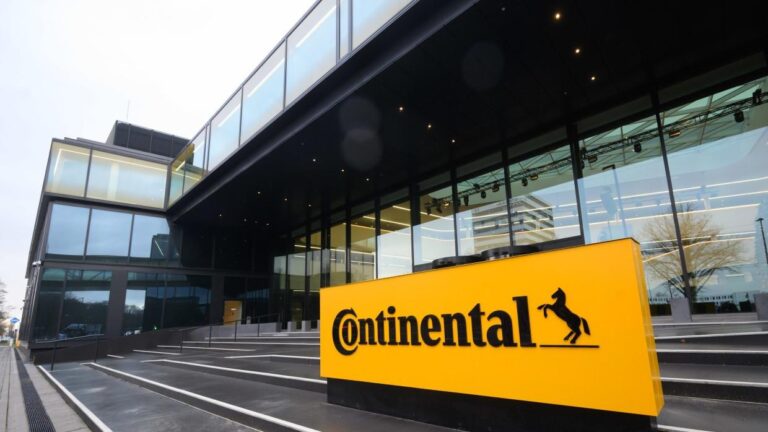Continental’s recent decision to split its automotive and tire divisions marks a significant turning point for one of Germany’s industrial giants and underscores a broader transformation within the country’s traditional business landscape. Once emblematic of the integrated, diversified corporate structures that have long defined German industry, Continental’s move reflects growing pressures from global competition, technological innovation, and shifting market demands. As the company repositions itself to thrive amid the accelerating shift toward electrification and digitalization, analysts see this restructuring as a clear sign that Germany’s historic business model is evolving to embrace greater agility and focus.
Continental’s Strategic Division Reflects Germany’s Evolving Industrial Landscape
Continental’s recent strategic division underscores a pivotal transformation within Germany’s industrial sector. The company’s decision to separate its tire business from its advanced automotive technologies highlights a growing trend among German conglomerates to streamline operations and focus on specialized expertise. This move reflects a broader shift away from the traditional multi-industry behemoth towards more agile and focused entities capable of responding swiftly to global market demands and technological innovation.
Key factors driving this shift include:
- Increased pressure to innovate rapidly amid the electric vehicle revolution
- The need for clearer business models attractive to international investors
- Enhanced competitiveness through targeted research and development
- Adapting to global supply chain complexities and sustainability goals
| Division | Focus Area | Projected Growth (2024-2029) |
|---|---|---|
| Tire Business | High-performance & sustainable tires | 6.5% CAGR |
| Automotive Technologies | Autonomous driving & connectivity | 12.3% CAGR |
Adapting to Global Competition and Technological Innovation in the Automotive Sector
In response to mounting pressure from global rivals and rapid technological shifts, traditional German automotive companies are fundamentally revising their strategic frameworks. Continental’s recent decision to split its tire and automotive divisions underscores a growing willingness among legacy firms to embrace specialized focus areas rather than a one-size-fits-all approach. This pivot enables faster innovation cycles and greater agility in addressing distinct market challenges, especially as electrification, autonomous driving, and digital connectivity reshape industry dynamics. By disentangling complex operational structures, companies aim to boost competitiveness while maintaining core strengths in engineering excellence.
Key areas driving this transformation include:
- Electrification: Accelerating battery tech and powertrain developments to meet shifting consumer demand.
- Software & Connectivity: Integrating advanced driver assistance systems and IoT capabilities.
- Global Supply Chain: Streamlining sourcing amidst geopolitical uncertainties and raw material scarcity.
- Sustainability: Aligning with stricter environmental regulations and corporate responsibility standards.
| Challenge | Traditional Model | New Approach |
|---|---|---|
| Innovation Cycle | Long and linear | Agile and iterative |
| Product Focus | Diversified conglomerates | Segment-specialized entities |
| Market Response | Reactive | Proactive & anticipatory |
This strategic realignment reflects a broader shift within Germany’s storied manufacturing landscape, balancing the preservation of its industrial heritage with a pragmatic embrace of future-oriented business models. Continental’s split is emblematic of an era where adaptability no longer complements competitiveness-it defines it.
Recommendations for German Manufacturers to Embrace Flexibility and Digital Transformation
To remain competitive in a rapidly evolving global market, German manufacturers must pivot towards agility and digital integration. This begins with adopting modular production systems that allow for swift adjustments in product lines and customization, catering to a growing demand for personalized vehicles and components. Investing in Industry 4.0 technologies-such as the Internet of Things (IoT), artificial intelligence, and advanced data analytics-can enable real-time monitoring and predictive maintenance, reducing downtime and enhancing supply chain resilience. Cultivating a corporate culture that values experimentation and cross-disciplinary collaboration will be equally critical to navigate the complexities of modern manufacturing.
Furthermore, embracing flexible organizational structures can facilitate faster decision-making and foster innovation. German manufacturers are encouraged to explore partnerships with tech startups and leverage external expertise to accelerate digital transformation. Below is a snapshot of key focus areas for successful adaptation:
- Flexible production lines for rapid response to market shifts
- Data-driven decision-making to optimize operations and customer insights
- Workforce upskilling to bridge the digital skills gap
- Collaborative ecosystems combining OEMs, suppliers, and tech firms
| Focus Area | Expected Benefit | Example Technology |
|---|---|---|
| Modular Production | Flexible product customization | Robotics & Additive Manufacturing |
| IoT & AI Integration | Predictive maintenance & efficiency | Sensor Networks & Machine Learning |
| Digital Skill Development | Agile workforce ready for innovation | Online Training Platforms |
| Collaborative Partnerships | Accelerated innovation cycles | Open Innovation Hubs |
Wrapping Up
Continental’s decision to split its business units underscores a notable shift in Germany’s traditional industrial approach, reflecting broader trends toward specialization and agility in the face of rapid technological change. As the automotive sector continues to evolve with electrification and digitalization reshaping market dynamics, Germany’s longstanding conglomerate model appears increasingly challenged. This strategic move by Continental may well signal how German industry is adapting to remain competitive in a global landscape defined by innovation and disruption.




